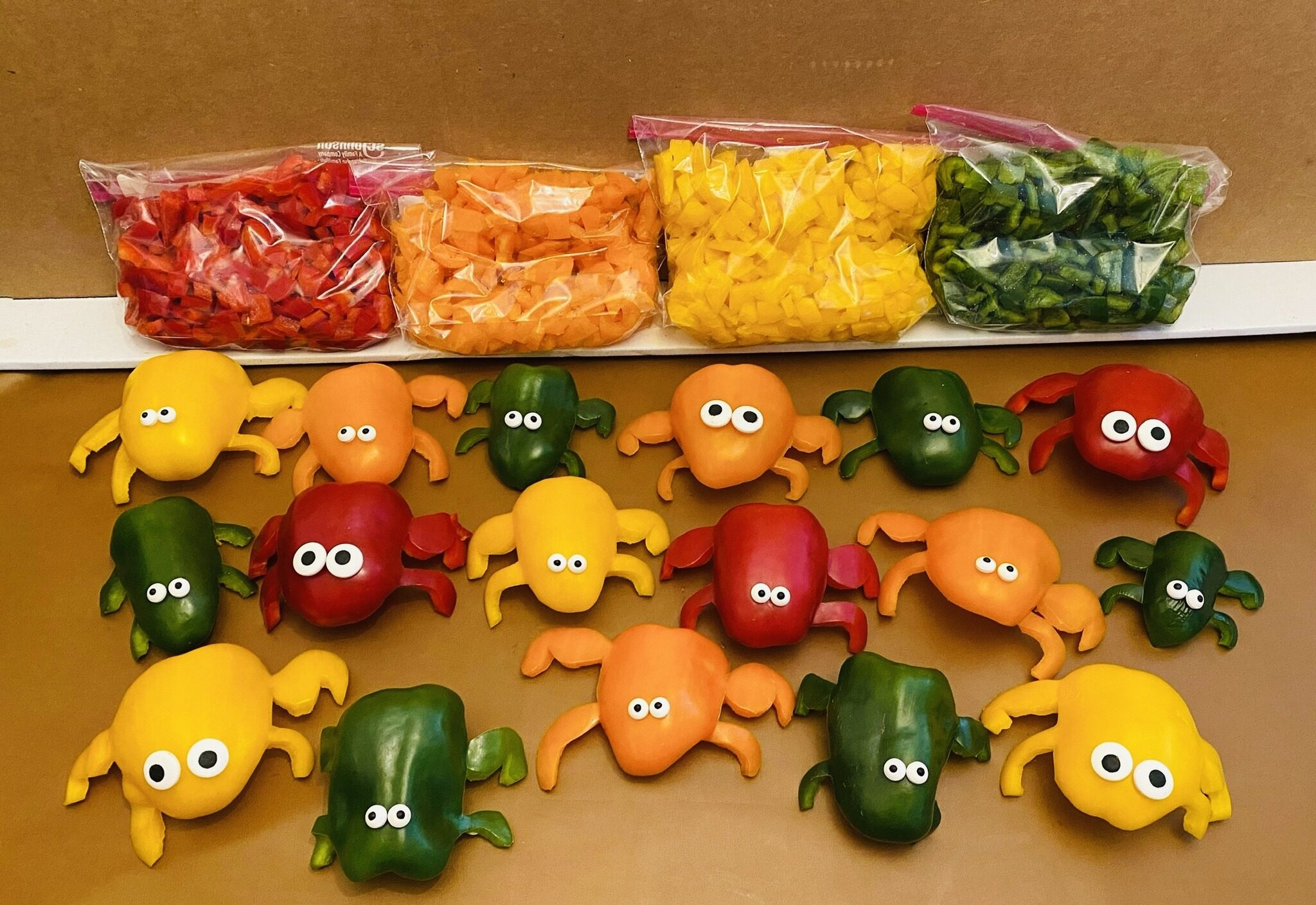Ethically, healthily, or environmentally, a vegan diet tends to be devoid of animal products. According to U.S. research, the number of people who have adopted veganism has increased by 350% in the past ten years, as it has become more mainstream than it once was. I.
Veganism is defined as a lifestyle that excludes all forms of animal cruelty and exploitation.
According to U.S. research, the number of people who have adopted veganism has increased by 350% in the past ten years, as it has become more mainstream than it once was. I. One Trusted Source.
Veganism is defined as a lifestyle that excludes all forms of animal cruelty and exploitation.
As someone who practices a plant-based diet, I’ve noticed fewer vegan foods on supermarket shelves and in restaurants lately.
One of my all-time favourite desserts, pastel de nata, has just been vegan.
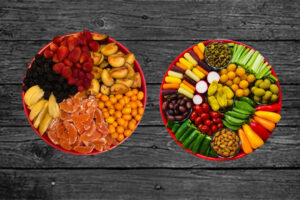
What is veganism, and what are some basic guidelines for consuming vegan food?
How would you describe veganism?
According to the Vegan Society, a group of vegetarians who formed the vegan movement in England from the Leicester Vegetarian Society in 1944 coined the term “vegan”.
They abstained from consuming meat and excluded dairy, eggs, and all other animal products.
The word “vegan” was derived from the first and last letters of “végan.” In 1949, veganism was defined for the first time. It has undergone slight modifications over time to become known today.
The Vegan Society defines veganism as an ideology and lifestyle that seeks to eliminate animal abuse and neglect for food, clothing, or other reasons.
Many people use the term “vegan” to describe their diet. According to the new definition, veganism goes beyond consuming plant-based foods.
People who practice veganism often strive to avoid animal exploitation or cruelty in all aspects of their lives, including clothing, cosmetics, and leisure activities .
Therefore, many vegans prefer something other than wool coats, leather furniture, down pillows, and comforters. Animal sanctuaries are alternatives to zoos, circuses, or animal petting farms for these individuals.
Why do individuals adopt a vegan lifestyle?
Individuals generally avoid animal products for a variety of reasons.
According to Ethical vegans, all living beings are entitled to life and liberty.
They view all animals as conscious organisms that, like humans, seek to avoid suffering and pain.
Ethical vegans are against the practice of killing animals to consume their fur or skin.
The psychological and physical stressors that animals face due to modern farming practices, such as small pens or cages, are also opposed by vegans.
Nonetheless, this sentiment is not limited to the brutality of modern farming for ethical vegans.
Vegans are against products that heavily rely on animal slaughter, as alternatives are readily available.
This involves eliminating calves deemed surplus in the dairy industry or culling -day-old male chicks often used for egg production .
Furthermore, ethical vegans generally believe humans cannot exploit animals’ milk, eggs, honey, silk, and wool, irrespective of living conditions .
Even if animals are free-roaming or pasture-fed, ethical vegans still object to consuming their milk, eggs, or wool.
Some individuals may seek the health benefits of a vegan diet.
Carbohydrates that contain high levels of meat, particularly red meat, are known to have cardiovascular and type 2 diabetes risks
Conversely, plant-based eating regimens have decreased the likelihood of developing or dying from these illnesses.
Switching from animal-based foods to plant-derived foods may improve digestion and reduce the risk of Alzheimer’s disease
The negative consequences of the hormones and antibiotics used in contemporary animal agriculture can be mitigated by adopting a vegan diet.
Individuals who consume a vegan diet are more likely to shed excess weight. Several studies have shown that vegans are less likely to become obese
Some nutrient intake can be reduced by those who follow a vegan diet. It’s crucial to plan for that reason.
Consult a doctor or registered dietitian to devise dietary guidelines for vegans.
Vitamins B12, calcium, zinc, and selenium are essential nutrients in vegan diets.
To minimize the environmental impact of animal products, people may also refrain from consuming them.
Vegan Food: From Plant-Focused Eaters to Fruitarianism: Diverse Paths within Vegan Diets
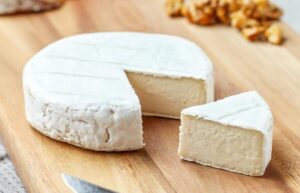
The role of animal agriculture in causing greenhouse gas emissions (GHG) and climate change, as indicated by recent data, is significant.
Meat eaters are believed to be accountable for 2–2. Vegans have a 5-fold higher number of GHGEs. This number relies on self-reported dietary habits in the United States. I. 20.
Ruminants, including cattle, sheep and goats,generate the highest emissions of greenhouse gases per gram of protein A decrease in GHGEs is associated with reduced dairy consumption or complete elimination.
According to a study, the vegetarian diet has fewer GHGEs and produces 33% more calories than the meat-containing standard American diet.
Even less of an influence on the environment results from a vegan diet, with GHGEs being around 53% lower than those found in calorie-matched meat (20).
Animals consume much of the plant protein produced today, rather than humans. As a result, creating an animal-based diet demands reliance on more global resources than cultivated foods.
Animal protein production necessitated 6-7 times more land than soybean protein.
Depending on seasonal and annual rainfall fluctuations, animals require 2 to 3 times more water than their protein counterpart .
Vegan Food near me: Veganism Demystified: Essential Guidelines and Nutritional Considerations

Animals consume much of the plant protein produced today, rather than humans. As a result, creating an animal-based diet demands reliance on more global resources than cultivated foods.
Animal protein production necessitated 6-7 times more land than soybean protein.
Depending on seasonal and annual rainfall fluctuations, animals require 2 to 3 times more water than their protein counterpart.
Experts predict that if current trends continue, our food system will consume most of the world’s resources by 2050. This outcome may be delayed by switching to a vegan diet.
The reasons people aspire to be vegan include several ethical, health, and environmental considerations.
Various forms of veganism It should be noted that being vegan does not always lead to optimal health.
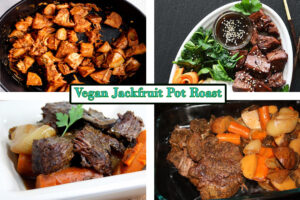
A vegan diet is defined by the foods it contains. While some vegan diets are healthily beneficial, others can be unhealthy.
In my clinical practice, I have encountered several subcategories of vegan diets over the past few years: dietary vegans. Those who abstain from consuming animal-based foods and substituting them in other products, such as clothing and makeup, are often labelled “plant-focused eaters.”
Whole food vegans. These people eat fruits, vegetables, whole grains, legumes, nuts, and seeds, which are all part of a balanced diet.
Vegans who consume junk food. Specific individuals prefer processed vegan foods like meats, fries, frozen meals and desserts like Oreo cookies and non-dairy ice cream.
Vegans who consume raw food. The group only eats raw or cooked food below 118°F (48°C).
Vegans who consume low-fat raw foods. Known as fruitarians, this group restricts high-fat foods like nuts, avocados and coconuts to fruit. At times, they may consume small quantities of other plants.
Whole-food vegan diets are often highly beneficial for health. It’s best to consult with therapists first for those interested in a vegan diet. This eating pattern includes dietary, whole-food, junk-eater, raw-food, and vegan with a low-fat, non-GMO raw approach. The nutritional value of a vegan meal depends on the composition of its components.
Vegetarian Food Near Me: What Does Share on Pot Eat for Vegans?
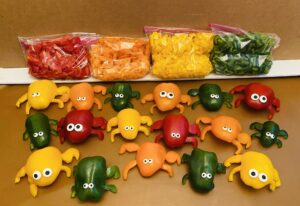
This list contains the essential foods that vegans should include and avoid.
Vegans can eat food without including animal products, but not just salads and tofu. Vegans can enjoy a diverse array of delicious foods.
A few examples of non-starchy vegetables and fruits are available.
You can replace meat-based main dishes with beans, peas, lentils, tempeh (rolled into balls), nuts or seeds.
In addition to dairy products, plant-based milks, scrambled eggs, molasses or maple syrup for honey, and you may add chia or flaxseed to uncooked eggs.
There’s also a growing range of ready-to-eat vegan treats, including meats, cheese and desserts.
These are likely to be highly processed. Despite being edible in moderation, they should not be the primary focus of a vegan diet.
Vegans refrain from consuming animal-derived foods. Food labels should be checked to ensure that any food contains animal-derived ingredients. It’s now easier to tell when you’re shopping that vegan food is vegan.
Vegans consume a diverse range of food options. Often, they substitute meat and eggs with various plant-based alternatives to suit the requirements of dietary vegans.
Generally speaking, For moral, health, or environmental reasons—or a mix of the three—vegans abstain from animal products.
When choosing a vegan diet, replacing meat, eggs, and dairy with plant-based foods like fruits, vegetables, whole grains, legumes, nuts, seeds or fortified products made from these foods is common.
Vegetarian Fast Food: Eggs in a Vegan Basket? Debunking Myths and Exploring Ethical Consumption
Getting off of veganism is more accessible than most people think. Still, it demands a little more depth in nutrition.
If you’re considering a change, consult with specialized registered dietitians to learn the basics of implementing dietary changes.
Your knowledge, finances, and culinary abilities may dictate the use of supplements to ensure your body gets all the nutrients it needs.
Do vegans eat eggs? Veganism provides a flexible diet that includes vegetarian and non-vegetarian food.
They seem like a simple choice to get rid of since the eggs are from poultry.
Nevertheless, some vegans are opting for specific egg alternatives. A meat-based diet is known as vegan.
Read this article to discover why some vegans consume eggs and what drives this trend.

Eco-friendly: Why do some people choose to be vegan? Vegetarian Friendly Food near me
Even though vitamin B12 is primarily obtained from animal sources like meat or eggs, a vegan diet can meet most nutritional requirements.
Getting sufficient vitamin D, calcium, zinc, and iron requires some preparation.
Vegans who consume eggs may face more significant challenges fitting in with these nutrients. A large, whole egg provides a blend of high-quality protein and nutrients.
Furthermore, some vegan groups that are at risk of nutritional deficiencies, such as children and women who are pregnant or breastfeeding, can benefit from a “vegan” diet.
For a variety of reasons, Strict vegans eliminate all animal-based foods, including eggs, with one being the advocacy for animal welfare.
Some vegans are inclined to include eggs in their diet if they are convinced that the eggs are sourced from ethically raised hens.
Eggs can be added to a vegan diet, benefiting everyone, particularly children and pregnant women.
Are there vegans who consume fish?
Vegans who consume fish are not included in their plant-based diets for health, environmental, ethical, or personal reasons. Fish can be included in your diet as it is a plant-based option.
A vegan lifestyle does not include the consumption of animal products.
Most people adopt a vegan or plant-based diet for health, environmental, ethical, or personal reasons.
It can sometimes be made clear what foods are allowed.
Including fish and shellfish in a plant-based diet has been subject to differing opinions.
This article argues that some individuals who follow vegan or non-vegetarian diets also consume fish.
Vegetarians, including vegans who avoid fish, follow a diet that excludes meat and animal products.
The list comprises meat, poultry, fish, and shellfish.
Non-vegetarian foods, such as honey and other animal products, are not part of the Vegan diet.
This is because the production of these ingredients is deemed unethical, exploitative, or detrimental to the health and life of the animal.
While fish is not typically included in vegan and vegetarian meals, some plant-based diets may contain fish.
Pescatarian individuals typically consume fish and seafood as part of their vegetarian diet but may incorporate fish into their meals.
Lacto-ovo vegetarians, mostly fish eaters , consume dairy and eggs.
A vegan diet is ostroveganism, which involves consuming bivalve molluscs such as oyster shellfish and scallops.
These species cannot feel pain like other animals because they lack a central nervous system.
However, this idea is highly controversial, with some research suggesting that bivalves may have more complex nervous systems and potentially feel pain like a neurologist.
Fish is a valuable source of nutrients, including protein, omega-3 fatty acids, vitamin B12, iodine, and selenium, all critical for overall health.
Yet, it is omitted from vegan and other vegetarian diets for health, environmental or ethical reasons.
However, some plant-based diets may allow for the consumption of certain fish species, such as bivalves like mussels, oysters, clams and scallops.
Ultimately, it’s all about how you feel about fish as part of a plant-based diet.
Vegan and non-vegetarian. What sets dairy products apart from vegetarian options?
Food labels and essential information on vegan dairy products.
Despite their similarities and commonalities, these diets are not identical. It may be beneficial to learn about their dissimilarities.
The method of differentiation between vegan and dairy-free foods, as described in this article, is also included.
While vegan and dairy-free diets have some commonalities and limit the consumption of certain foods, they differ in their principles.
How would you define a vegan diet? vegetarian food

Both the diet and lifestyle of a person can be considered vegan. Those who opt for a vegan lifestyle steer clear of products that contain or exploit animals.
A vegan diet comprises plant-based foods such as fruits, vegetables, nuts, seeds (eggs), legumes, and grains. Meat, fish, seafood dai,ry products, eggs and other animal-based ingredients (such as honey) are omitted.
A person may opt for veganism due to concerns related to the environment, animal welfare, personal health, and moral values.
Consumer products containing animal ingredients or tested on animals are generally not part of vegan lifestyles. Among them are personal care items, clothing, and cosmetics.
What is the definition of dairy-free?
A diet that excludes all dairy products is one-way. This includes milk from any animal and all products made from such milk, including cream, butter, yoghurt or cheese.
Even so, those following this eating regimen sometimes consume additional animal products like meat, fish, shellfish and eggs.
Those who opt for dairy-free diets due to health concerns like cow’s milk allergy or lactose intolerance can experience diarrhoea and gas after consuming dairy products.
Ethical considerations may prompt some individuals to go dairy-free.
The Vegan Society’s founders term “vegan” was first used in 1944 by English animal rights activist Donald Watson to refer to anyone who abstains from exploiting animals for moral or ethical reasons. Being a vegan is synonymous with being.
An entirely animal-based diet included eggs, meat, fish, poultry, cheese, and other dairy products. Most vegan foods are made from plant-based ingredients, including fruits and vegetables.
Throughout time, veganism developed into a movement that prioritized environmental and health concerns over animal welfare and ethics, supported by research. Trustedialogue).
The negative impacts of modern animal agriculture on the planet and the potential health consequences of consuming processed meat and unsaturated fats have become more widely known.
In 1980s, Dr T. The term “plant-based diet” was introduced by Colin Campbell to define a plant-centred, low-fat, high-fibre, vegetable-rich diet that prioritized health over ethics.
Approximately 2% of Americans claim to be vegans, with the majority belonging to this generation.
Additionally, numerous individuals choose to limit their animal-based and vegan diets while adhering to a popular plant- or vegan-focused diet.
Plant-based eating typically involves only consuming plant-derived foods.
A diet that primarily or almost exclusively includes plant foods is commonly called “plant-based”. Even so, a few individuals may identify as plant-based and consume some animal-derived items.
Others refer to their diet as “whole foods, plant-based” and emphasize raw or minimally processed whole plant foods.
Those following a whole food, plant-based diet avoid oils and processed grains, while those following vegan or other plant-based principles consume them.
Due to the prevalence of processed vegan foods, the “whole foods” component is a crucial differentiation. Despite being vegan, some items like mac and cheese, hot dogs, cheese slices, bacon, and
chicken nuggets are unsuitable for a whole foods diet.

The concept of a vegan lifestyle encompasses the diet and daily habits.
Generally, veganism refers to a lifestyle that involves abstaining from animal consumption, usage, or exploitation. Despite potential personal preferences and barriers, the ultimate goal is to minimize animal suffering through life choices.
Individuals who adopt a vegan lifestyle also avoid purchasing goods produced or tested on animals.
Clothing, personal care products, shoes, accessories, and household items are frequently included. Sure, vegans may opt to avoid medications or vaccinations that contain animal byproducts or have been tested on animals.
